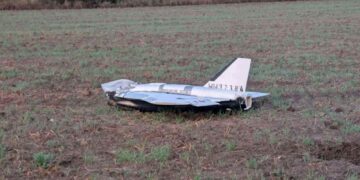Bird flu restrictions have been put in place across all of England and Scotland as cases of the virus continue to rise. The measures come as a response to the increasing number of outbreaks in poultry farms and wild bird populations.
The restrictions include a mandatory housing order for all poultry and captive birds in England, Scotland, and Wales. This means that all birds must be kept indoors to prevent contact with wild birds that may carry the virus. Additionally, biosecurity measures have been heightened to minimize the risk of transmission between farms.
The UK government has urged poultry farmers to be vigilant and report any signs of bird flu immediately. This includes symptoms such as sudden death, a drop in egg production, or respiratory distress in birds. Farmers are also advised to enhance their biosecurity measures to protect their flocks.
The latest outbreaks of bird flu have been identified as the H5N1 strain, which is highly pathogenic and can spread rapidly among poultry. The virus can also be transmitted to humans, although the risk is considered low. Nevertheless, health authorities are closely monitoring the situation to prevent any potential threats to public health.
In addition to the restrictions on poultry farms, bird flu prevention measures have also been implemented in wild bird populations. This includes increased surveillance and monitoring of migratory birds that may carry the virus. The aim is to prevent the spread of the disease to domestic poultry and minimize the impact on the agricultural sector.
The bird flu restrictions have raised concerns among farmers and poultry industry stakeholders about the potential economic impact. With birds being kept indoors, there may be challenges in terms of feed supply and animal welfare. However, the government has assured that support will be provided to affected farmers to help mitigate any financial losses.
Overall, the bird flu restrictions in England and Scotland are a necessary measure to control the spread of the virus and protect both poultry and public health. By implementing strict biosecurity measures and monitoring systems, authorities aim to contain the outbreaks and prevent further spread of the disease. It is crucial for all stakeholders to cooperate and adhere to the regulations to ensure the safety of the poultry industry and the general population.
































































